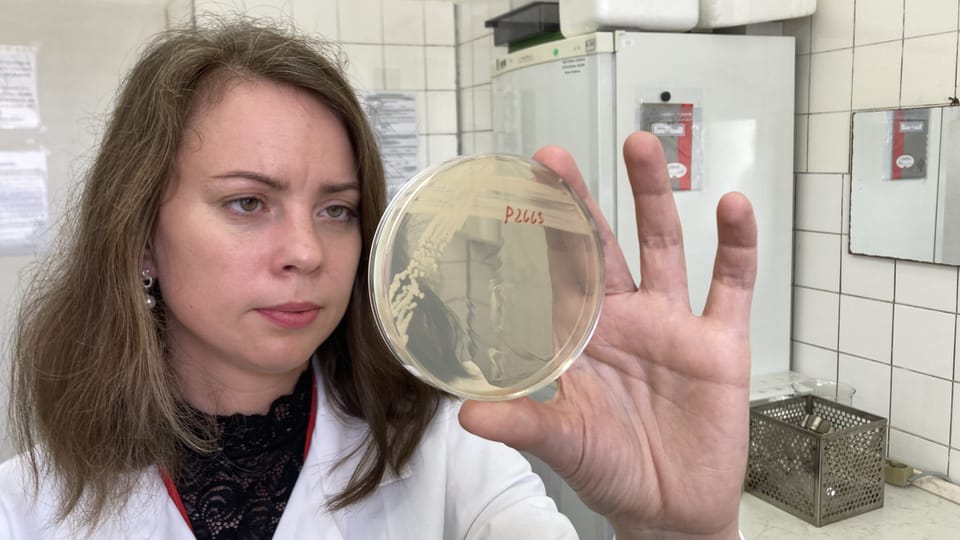Ten years after completing the analysis of samples brought back from the Czech mission in Antarctica, a scientist from Masaryk University in Brno announced the discovery of a new type of bacterium that could serve as a substitute for ineffective antibiotics.
Pseudomonas rossensis: behind this Latin scientific name lies the dream of every scientist striving to make a significant discovery that will forever be associated with their name. This is the case for this new type of bacterium, identified by Kateřina Snopková from the Microbiology Institute of the Faculty of Medicine at Masaryk University in Brno.
« Ten years ago, I had to finish my ongoing research first. Then I started working on the samples brought back from Antarctica, but it turns out I also had two children in the meantime. I got back to it later and discovered that we had a new species of bacteria after about eight years of research. Then it took some more time before we could publish the data, » she explained.

As it has done every year since 2006, the start of the year meant an expedition to the ends of the Earth for about twenty Czech scientists, divided into two teams. Recently returned, one part of the team stayed on James Ross Island in Antarctica, where they have a polar station. The other team was based on Nelson Island.
Breaking the stereotype of Antarctica being associated with freezing cold and penguins, these scientists have previously studied lichens, reminding that even in these latitudes, photosynthetic organisms exist, or they have also investigated microscopic fungi present in this region of the planet. Among the various subjects of interest are the impact of climate change on the region or the study of « permafrost, » the frozen ground that remains perpetually frozen.

The main team of 14 scientists spent several weeks at the Johann Gregor Mendel Polar Station located on James Ross Island, alongside Israeli, Spanish, and Italian colleagues. For the first time this year, they also studied the specificities of avian flu spread in Antarctica and marine and terrestrial algae, but also conducted tests on all participants similar to those performed in space research to study human psychology and physiology in a hostile environment.

But once the stays on-site are over, the research does not stop; in fact, it truly begins with the study of the samples collected. In the case of the bacterium identified by Kateřina Snopková, the unexpected discovery is more like the cherry on top of a more complex study of the adaptability of these organisms to the conditions of the South Pole.
« The bacteria must be very well adapted to the fact that the soil freezes and thaws regularly, there are high doses of UV rays hitting the soil, and it contains minimal nutrients, » Snopková said.

Pseudomonas rossensis, named after James Ross Island, is, as the name suggests, a pseudomonad, a genus of bacteria widely distributed in nature, consisting of over 350 species. Some of them can cause serious diseases, and many show high resistance to antibiotics. This is the case with Pseudomonas aeruginosa, which causes respiratory or urinary tract infections. Other species, however, are beneficial, like Pseudomonas rossensis, which secretes bacteriocins, proteins that eliminate related bacteria.
« It has to compete with other bacteria for nutrients and resources that are very limited in a harsh environment like Antarctica. These bacteriocins are also capable of eliminating Pseudomonas aeruginosa. This bacterium is often found in hospitals. It causes infections in burn victims, as well as respiratory infections or urinary tract infections. It’s because of this bacterium that we are facing the very common problem of antibiotic resistance. »

Thanks to its genetic makeup, the rival bacterium from James Ross Island has the ability to overcome the harsh conditions of Antarctica, and nature has developed ways to fight resistant bacteria. Now, thanks to this discovery, it is up to scientists to understand these mechanisms to use them in medicine, particularly to address the issue of antibiotic resistance.
Source: francais.radio


